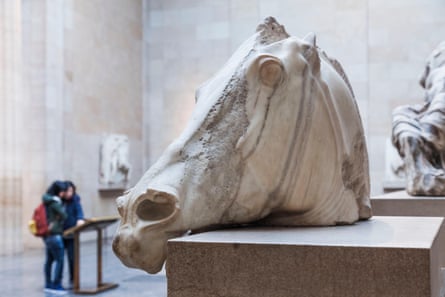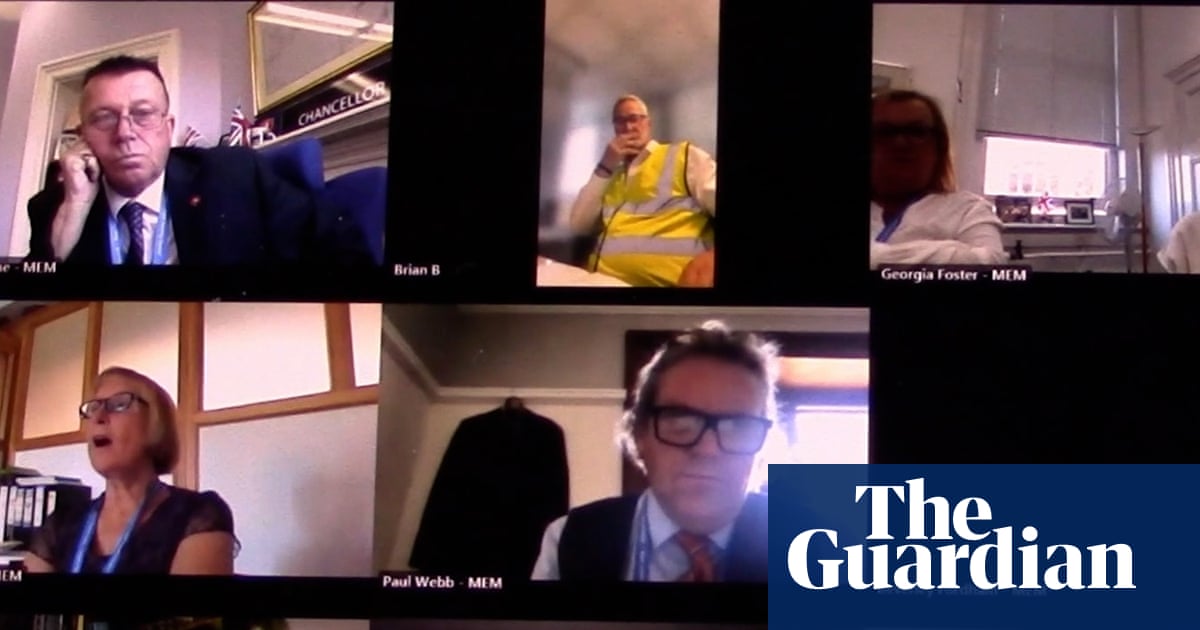The former prime minister Liz Truss, the historian David Starkey and the former Wales secretary John Redwood are reportedly among 34 signatories to a letter alleging the British Museum is part of a “covert” campaign to return the Parthenon marbles to Greece.
The letter, seen by Sky News, has been reportedly sent to Keir Starmer, the culture secretary, Lisa Nandy, and trustees of British Museum.
The letter has been organised by the hard-right campaign group Great British Pac, led by the Conservative activist Claire Bullivant and the former Reform deputy co-leader Ben Habib.
It is said to call for an end to any negotiations to return the Parthenon sculptures, also known as the Elgin marbles, or risk legal challenges.
In the letter, campaigners call out what they allege as a “covert negotiation”, citing an “accelerating campaign to remove the Elgin marbles from the British Museum”.
The Parthenon, or Elgin, marbles are the ancient Greek sculptures that once decorated the temple on the Acropolis in Athens. They were removed between 1801 and 1815 by Lord Elgin, the British ambassador to the Ottoman empire, who claimed he had permission to take them, although no supporting document has been found. The sculptures were acquired by the British Museum in 1816, but their rightful ownership has been disputed since the 1980s.
Last year, two months after Labour’s electoral victory, Giorgos Gerapetritis, the Greek foreign minister, told the Guardian he believed a deal was “relatively close”. Negotiations between Athens and the British Museum began in 2021.
It has been previously reported that any possible agreement might be underpinned by a cultural partnership between the two countries, with the sculptures returned to Athens and reunited with other pieces currently on display at the Parthenon galleries of the Acropolis Museum in exchange for renowned art works that could take centre stage at rolling exhibitions in London.

Responding to the reports about the Great British Pac letter, Dan Hicks, a professor of contemporary archaeology at the University of Oxford, said: “The accusation of a covert and accelerating campaign appears to be aimed at publicly appointed trustees, whereas in reality it is the structure, funding and identity of Great British Pac that is opaque and concerning.
“Perhaps the signatories could explain who and what exactly this group is and who is paying for it. This letter is a desperate culture-warrior exercise in scaremongering and intimidation developed by undefined political actors.”
He added: “International loans have been a normal part of the operation of museum exhibitions for more than a century. To give just one example, the British Museum itself will be the recipient of a high-profile loan from France next year when the Bayeux tapestry will be put on display. Many will question why the UK’s national museums remain unable to make permanent returns of stolen cultural objects on a case-by-case basis, as other British museums are able to do.
“And some, myself included, have been asking why national museum directors and trustees are not calling for a change in those antiquated 1960s laws. But to call into question the legality of making loans from Britain to an EU nation would be very odd indeed.”
A spokesperson for the British Museum said: “Discussions with Greece about a Parthenon partnership are ongoing and constructive.
“We believe that this kind of long-term partnership would strike the right balance between sharing our greatest objects with audiences around the world, and maintaining the integrity of the incredible collection we hold at the museum.”

.png) 3 months ago
36
3 months ago
36

















































